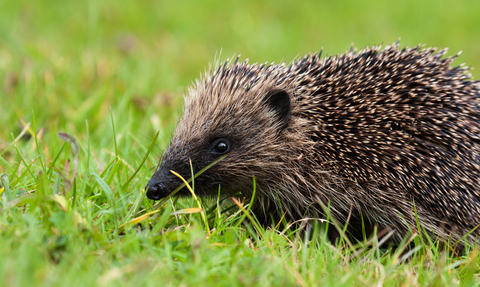
Vaughn Matthews
How to help injured wildlife
Sick, injured, or abandoned animals
On this page you will find advice on what to do if you come across sick, injured or abandoned animals. As we are not a wildlife rescue organisation we do not have the facilities to care for wildlife. We also do not offer any services related to the discovery, reporting, or disposal of dead animals. There are many Rescue Centre's which will provide care for a variety of animals. Click below to find a rescue centre near you or keep reading for further advice.
Advice on commonly found wildlife
If you come across a sick or injured wild animal, it can be hard to know what to do. Wild animals can be unpredictable when approached by humans, especially when under duress. Below are animals we are commonly asked about with information on how to help if action is required.
Baby birds
It is common for baby birds to leave the nest earlier than you might expect, sometimes before they can fly. Baby blackbirds, tawny owls and seagulls are well known for this. As long as their parents are still around and caring for them then the best thing to do is leave them alone. Your presence may stop the parents from looking after them so it is best to keep your distance. Keep an eye to see if the parents return.
If the baby bird is in a dangerous location then you can move them to a nearby safer spot. You must ensure the new spot is accessible to the parents. It is a myth that parent birds will abandon their young if handled by humans.
For more advice head to the Wildlife Trusts website here.
Hedgehogs
Hedgehogs usually hibernate between November to mid-March and are nocturnal creatures. If you see a hedgehog out and about during the winter or in daylight and it also looks unwell it may need a helping hand. A healthy hedgehog will generally be moving quickly, appear well and only be out for a short period of time. Remember, hedgehogs can emerge from hibernation to change nesting sites.
If you are concerend about a hedgehog contact The British Hedgehog Preservation Society. They will offer in depth advice and help you find a local rescue centre. If you are adviced to intervene follow these steps:
-
Prepare a cardboard box with high sides by lining it with a towel or scrunched up newspaper. This is so that the hedgehog can hide.
-
Find yourself a pair of gardening gloves before gently scooping up the hedgehog into the box.
-
Keep the box in a quiet, warm place. A hot water bottle filled with hot tap water wrapped in a towel provides a gentle heat source – make sure it doesn’t go cold!
-
You can provide some fresh water and meaty cat or dog food, but don't try to feed the hedgehog directly.
Bats
Bats are nocturnal so it is unusual to see them during the day or in busy buildings.
Signs there may be a problem:
- Found on the ground
- Exposed during the day
- Trapped in the living area of a building
- Caught by a cat
- Baby bat on its own
- Obvious injury or trapped on flypaper/fishing hook
Who to contact:
The Bat Conservation Trust has a National Bat Helpline that can provide advice and contact details for local rehabilitators.
If immediate action required:
- Prepare a shoe box (or similar sized box) with ventilation holes and line with clean cloth or a tea towel.
- ALWAYS wear protective gloves and try not to handle the bat directly. If bitten or scratched, seek immediate medical advice.
- Try to capture the bat like you would a spider. Place the box over the top and then slide the lid gently underneath.
- If that’s not possible, try to cover the bat with a clean cloth and scoop up to put in the box.
- You could include a plastic bottle cap, like a milk bottle cap, with a few drops of water
- Keep in a quiet safe location whilst seeking help.
Seals and Cetaceans
Finding a stranded animal can be distressing. Though your first instinct may be to try to help it back into the water, you should never try to do this. The animal has become stranded for a reason and requires urgent professional medical attention. Contact the relevant organisation as soon as possible. Note your location, the state of the tide, and any obvious injuries you can see.
Call the British Diver's Marine Life Rescue hotline on 01825 765546.
Keep your distance, and keep other people, dogs, and gulls away. Contact with or proximity to humans can cause additional stress and also put yourself at risk if the animal thrashes. Direct contact can also transmit disease.
For specific details on dealing with live strandings, visit the British Diver's Marine Life Rescue website. Please do not try to deal with a stranded animal alone - always call for help.
What to do if you find a dead animal
Occasionally, we all come across the sad sight of a dead animal.
We do not offer any services related to the discovery, reporting, or disposal of dead animals. Reporting your sighting can contribute to data collection for conservtion purposes. Sometime report a sighting of a dead animal is required by law. For more information see here.
Wildlife crime
Wildlife crime can take many forms and it can be difficult to know what constitutes a crime. Ranging from trading endangered species to shooting raptors wildlife crime takes many forms. If you believe you have witnessed a crime, please share this information to assist in bringing offenders to justice.
